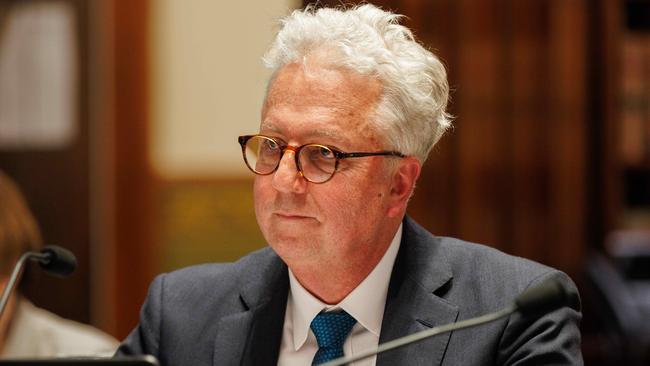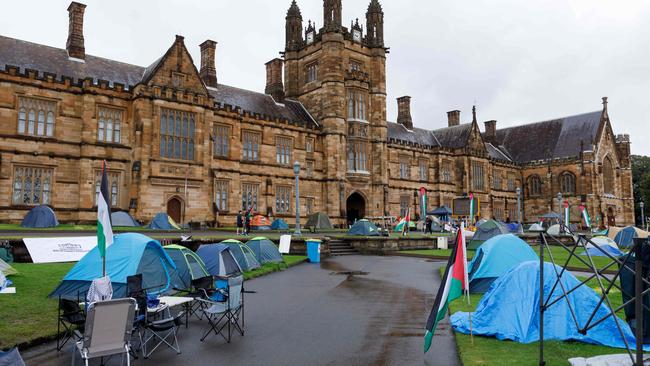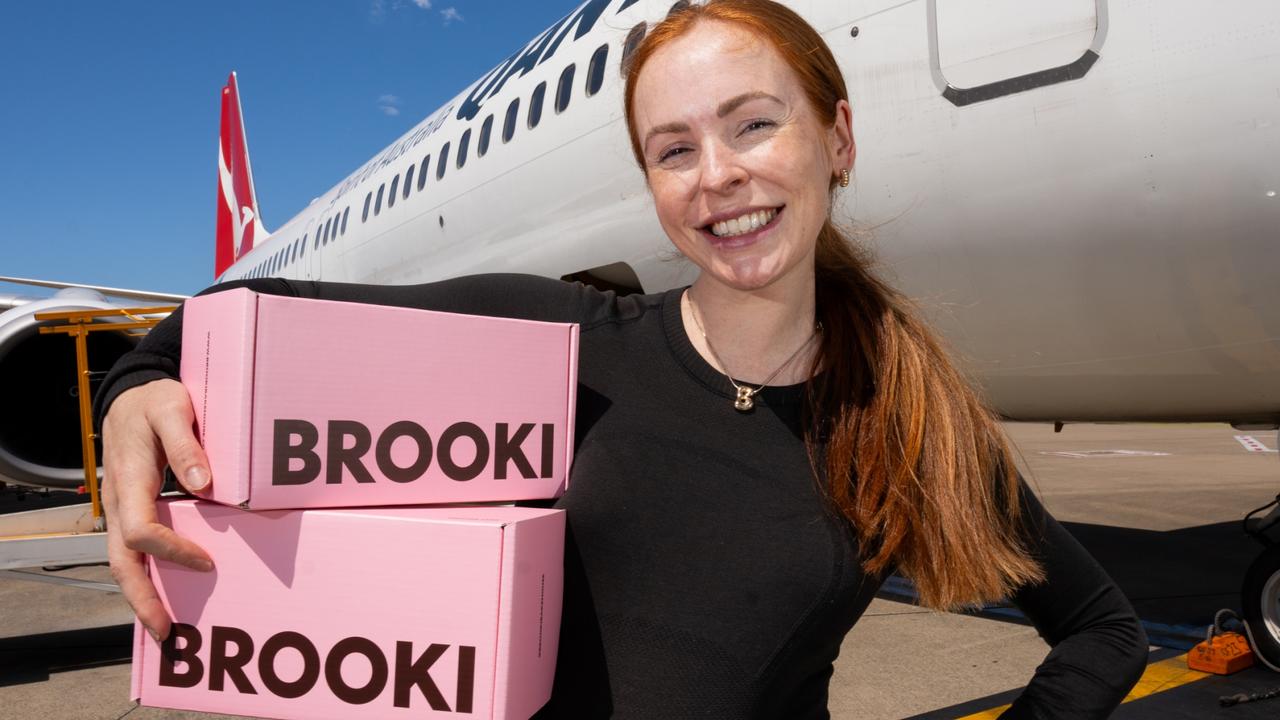Sydney University vice-chancellor Mark Scott defends record after ‘complex, challenging year’
University of Sydney vice-chancellor Mark Scott has backed his handling of anti-Semitism since October 7, describing the previous year as one of the ‘most challenging’ in the institution’s history.

You can now listen to The Australian's articles. Give us your feedback.
University of Sydney vice-chancellor Mark Scott says he received assurances police would let him know if radical Islamic group Hizb ut-Tahrir posed a threat on campus during May-June’s pro-Palestine encampment, as he referred to the previous 12 months as one of the “most complex and challenging” periods in the institution’s history.
It comes as The Australian revealed on Tuesday how some Jewish staff had filed a workplace claim with SafeWork NSW citing “psychosocial harm”, but also after the university’s much-publicised pro-Palestine encampment and the subsequent deal to end it.
Appearing before a NSW budget estimates hearing, Mr Scott defended his record on tackling anti-Semitism and ensuring the campus was safe since October 7, citing the “complexity” of balancing the university’s “dual commitments” of academic freedom and freedom of speech, with safety and wellbeing.
“I’ve never encountered an issue (the Israel-Hamas war) that’s generated more anguish, grief and anger,” he said.
“October 7, the ongoing conflict and genuine distress among our community … there’s never been an issue with more people who are tearful, grief stricken and who have a personal connection to (Israel or Palestine).”
Much of Mr Scott’s appearance centred around the university’s management of the two-month-long encampment and its response, where – in a successful bid to end the protest – a deal was brokered with protesters in June, which included more transparency around its investments in defence companies and a student voice that would provide advice.
The protesters’ demand of severing ties with Jewish universities, both for staff and students, was dismissed out of hand, the vice-chancellor said.
“Managing that was complex for us … and we looked extensively at what happened at overseas universities,” Mr Scott said.
“The tension was a clear one: balancing our commitment to academic freedom and freedom of speech, but also ensuring that those didn’t interfere in the rights of freedoms of others.” In June, it was revealed that Hizb ut-Tahrir had been involved in elements of the protest and although the group is not a listed terrorist organisation, as it is in the UK, its presence was slammed by politicians and Jewish leaders.

Mr Scott said he first became aware members of the group could be present in May but that security advice from NSW Police never relayed any specific concerns or that concerted efforts should be made to turf them out, particularly as the campus is open to the public.
“We sought assurances to be notified about information (updates) on extreme groups,” Mr Scott said. “What I took from that (a meeting with NSW Police) is that if there were things we should be concerned about, the presence of extreme groups, they’d let us know.
“Hizb ut-Tahrir are not a proscribed terror group; if they were they’d be banned from campus. There’s no mechanism for us to stop them being there, given they are not a banned group.”
Defending both the encampment’s existence and the deal, Mr Scott said a key aim was “de-escalation”, pointing to the detrimental effect force had at similar movements in the US.
Mr Scott’s comments come little over a week since The Australian revealed how Jewish leaders said universities, including Sydney, “enabled or tolerated” anti-Semitism across campuses.
He rejected that premise at his own institution, adding that Palestinian students had come to him with similar concerns regarding Islamophobia.







To join the conversation, please log in. Don't have an account? Register
Join the conversation, you are commenting as Logout